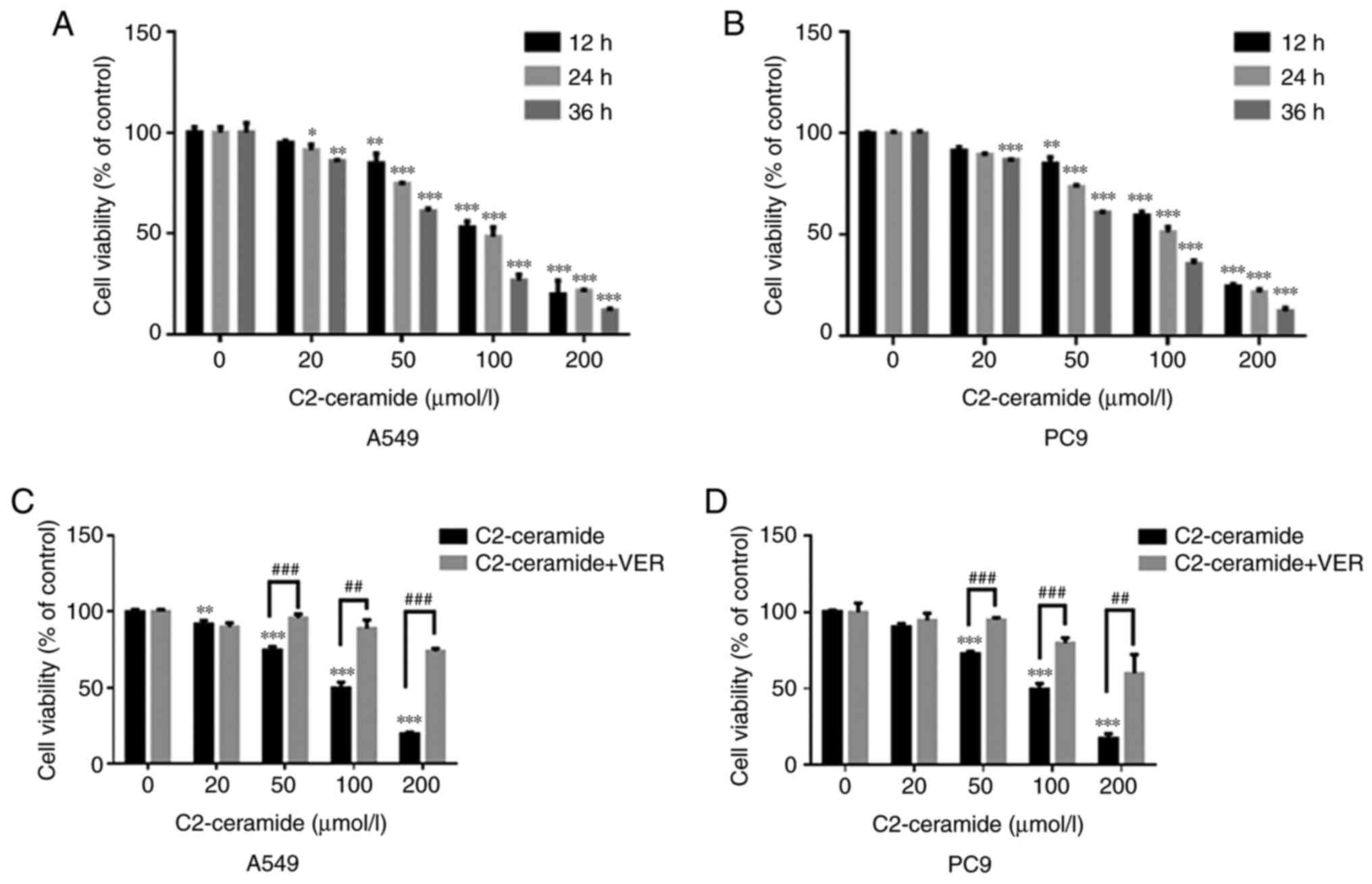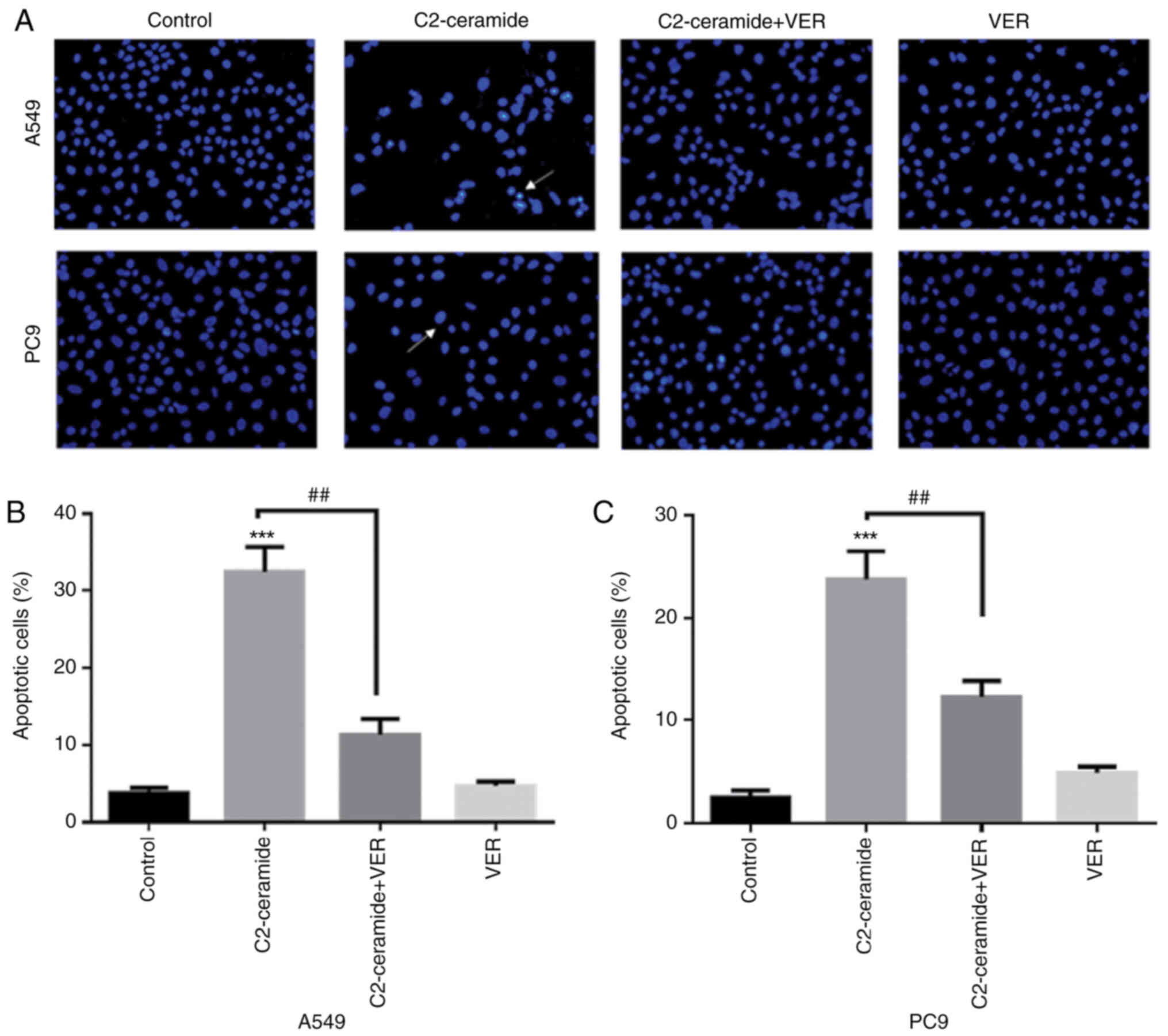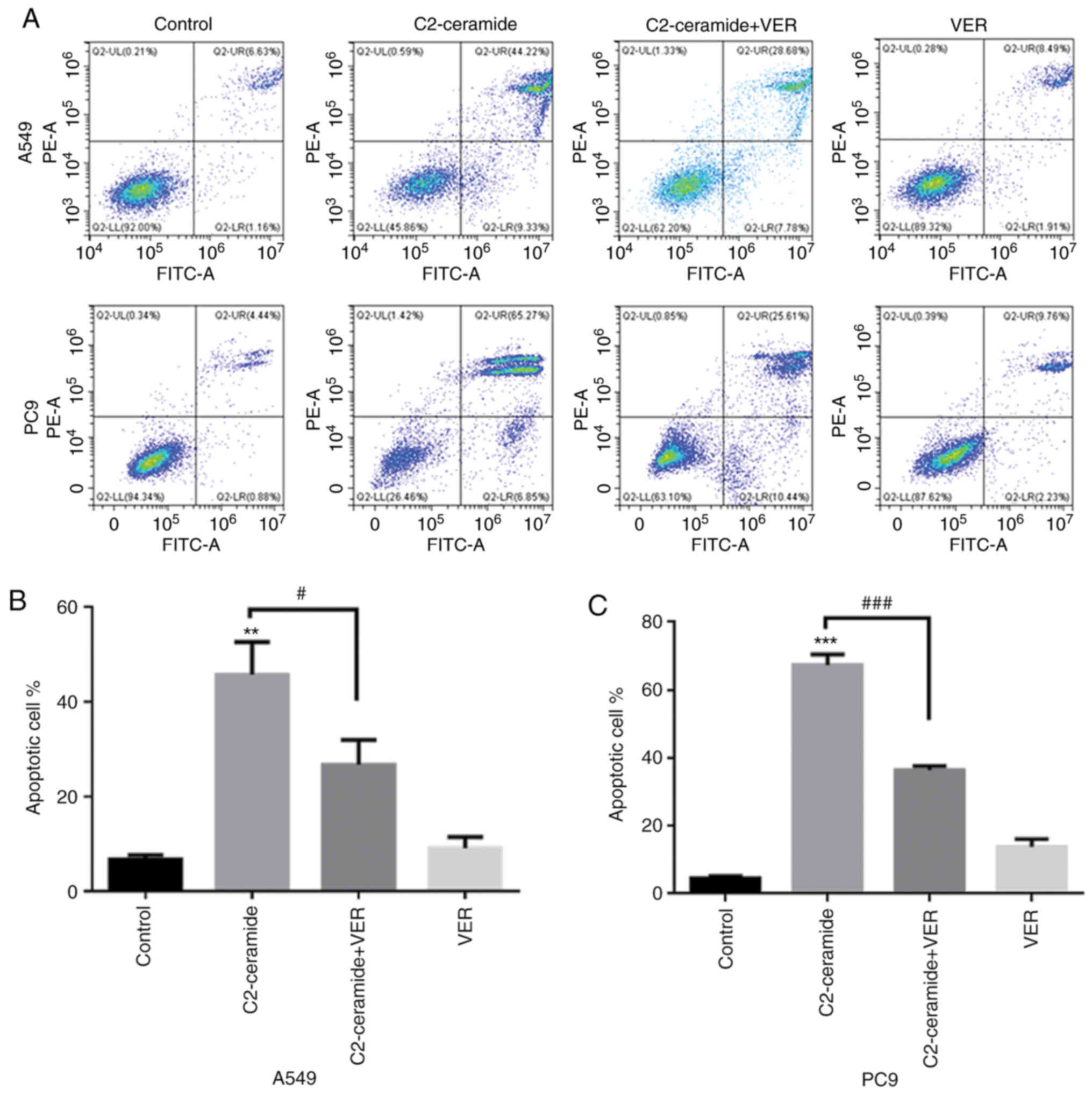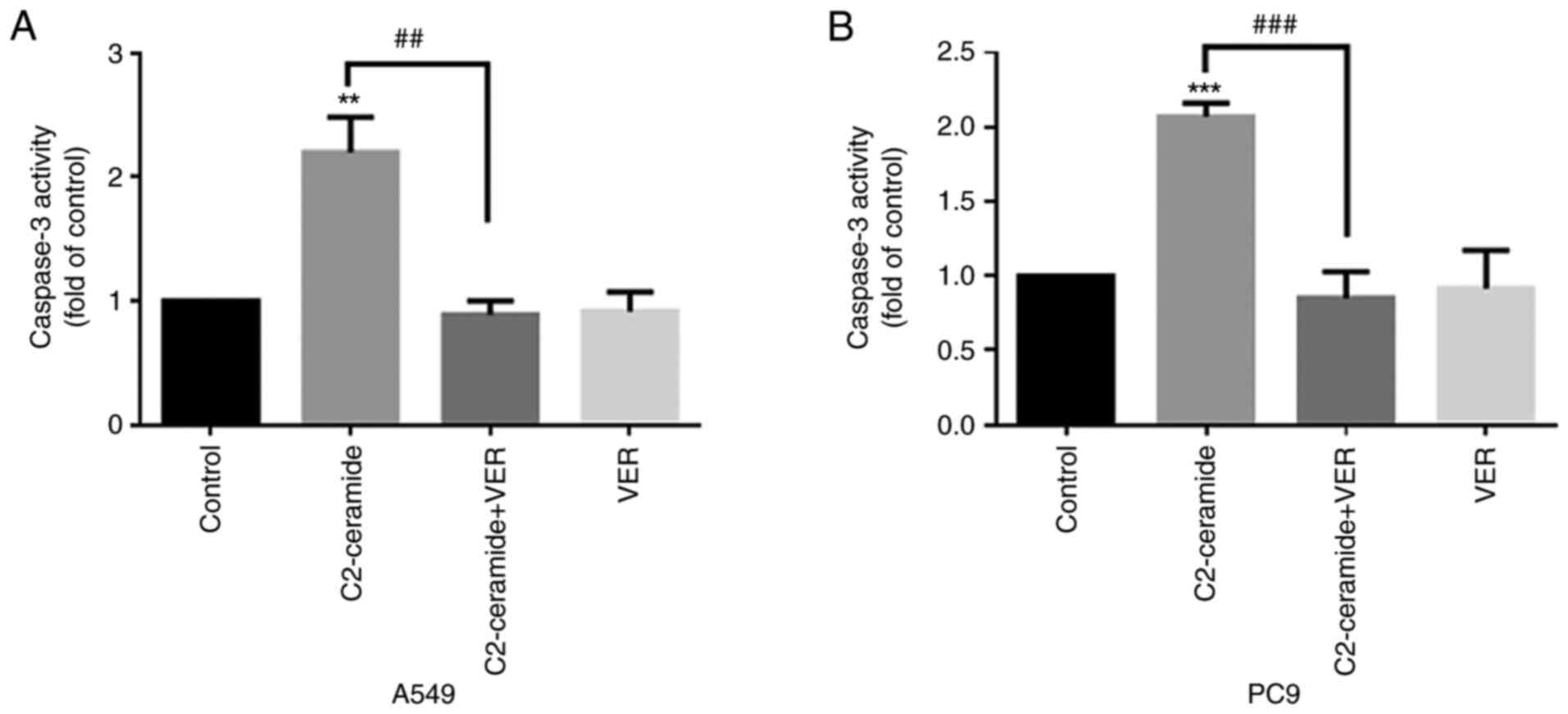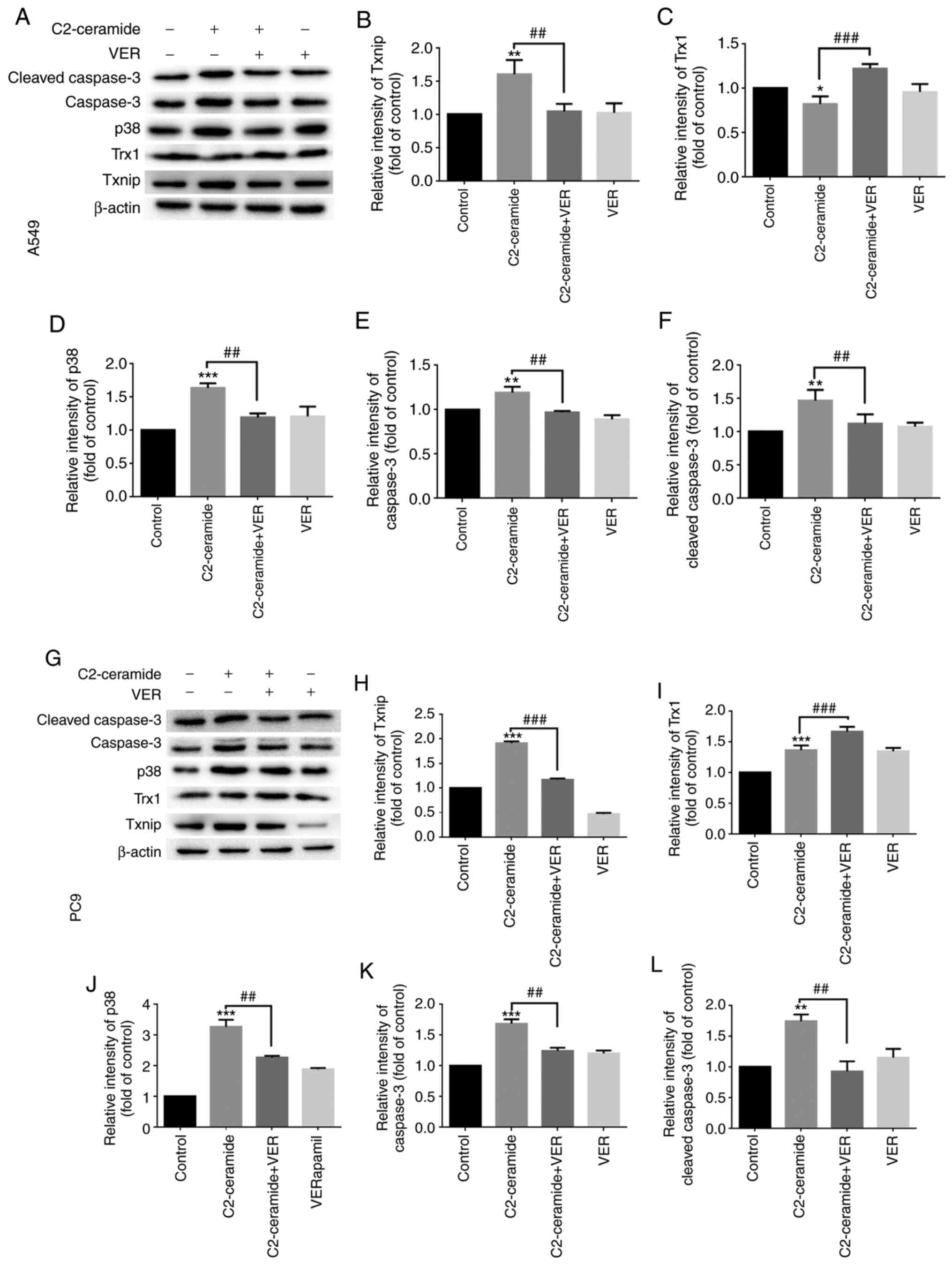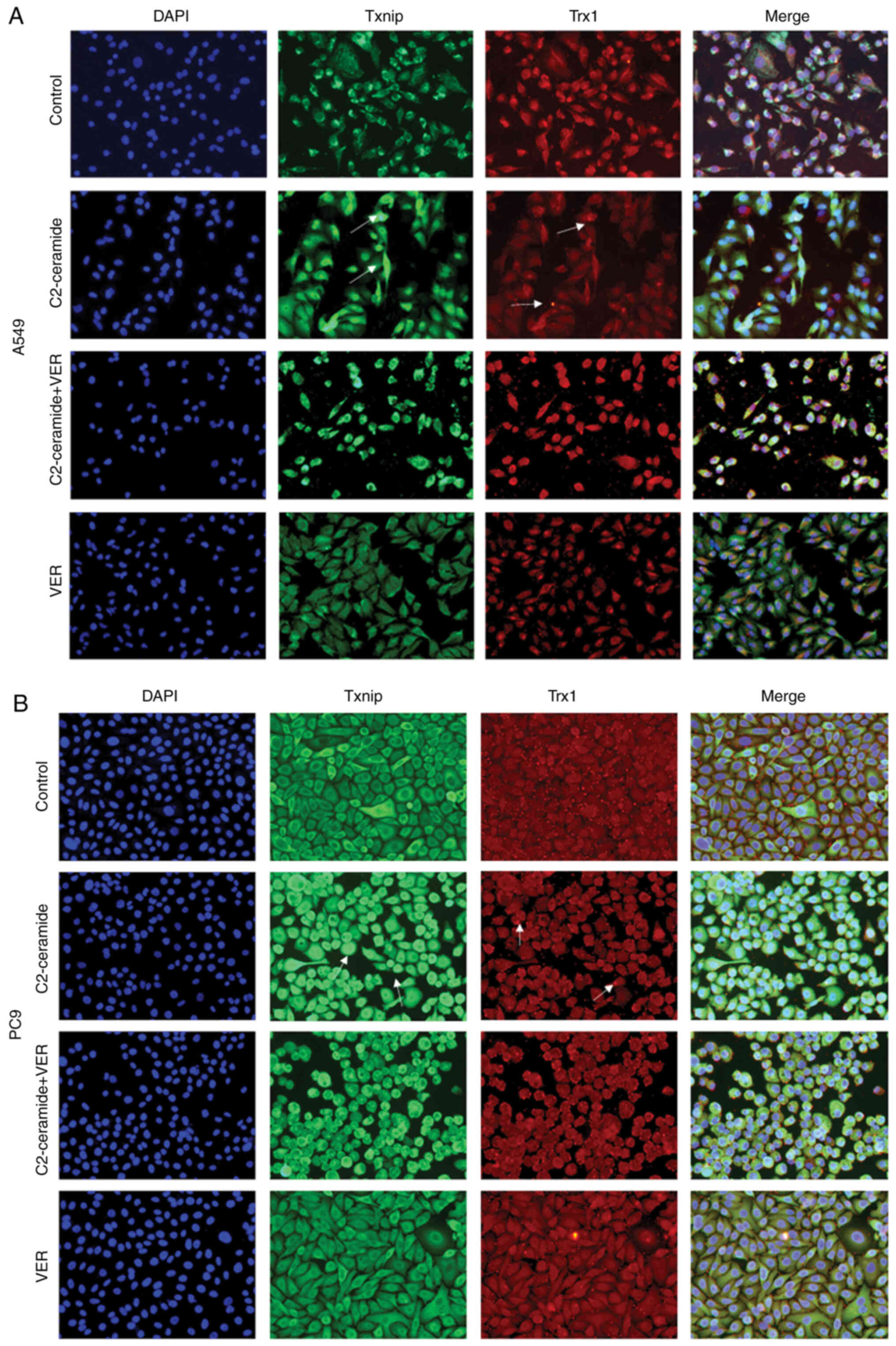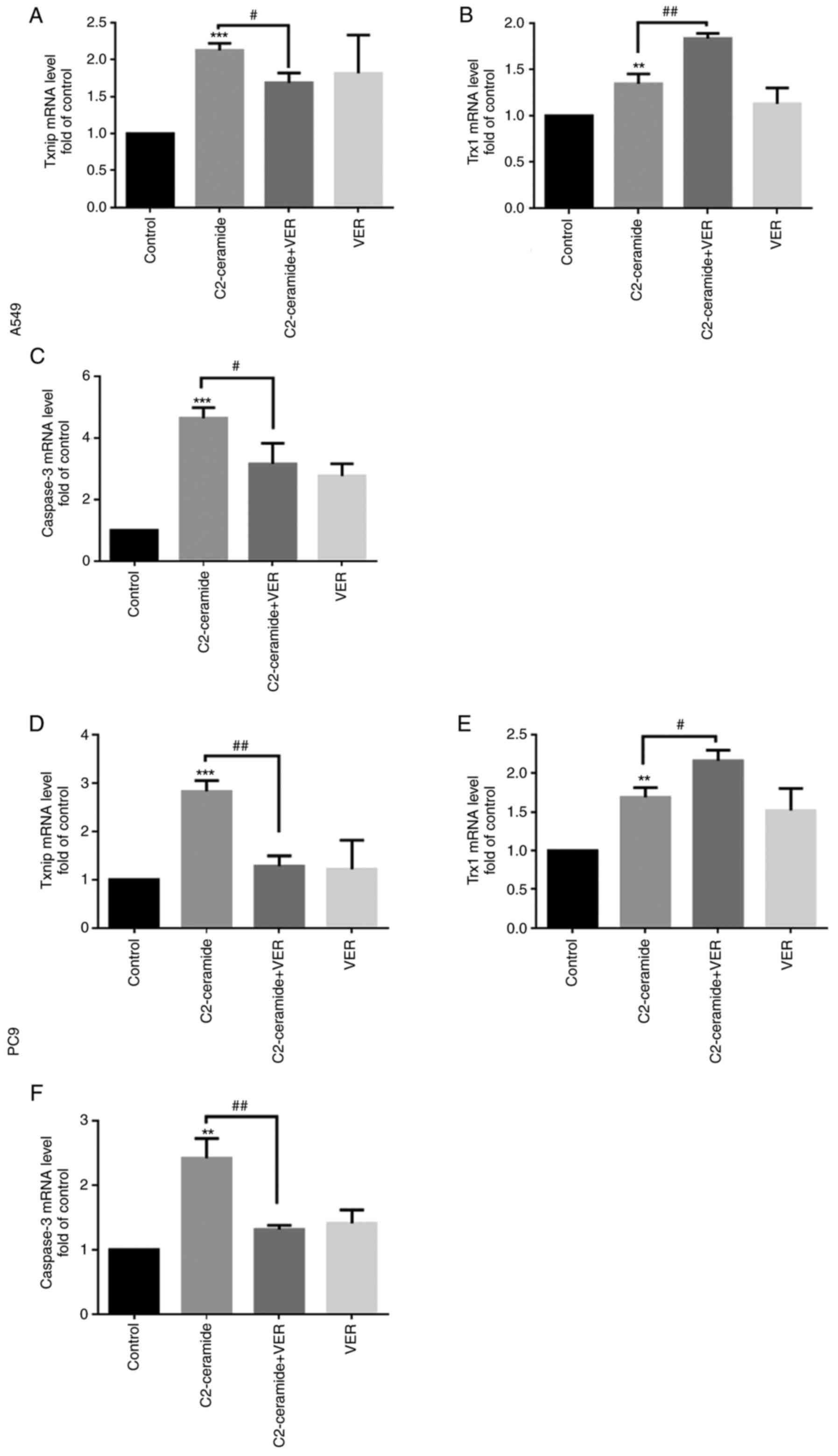|
1
|
Remark R, Becker C, Gomez JE, Damotte D,
Dieu-Nosjean MC, Sautès-Fridman C, Fridman WH, Powell CA, Altorki
NK, Merad M and Gnjatic S: The non-small cell lung cancer immune
contexture. A major determinant of tumor characteristics and
patient outcome. Am J Respir Crit Care Med. 191:377–390. 2015.
View Article : Google Scholar
|
|
2
|
Skřičková J, Kadlec B, Venclíček O and
Merta Z: Lung cancer. Cas Lek Cesk. 157:226–236. 2018.
|
|
3
|
Misra P and Singh S: Role of cytokines in
combinatorial immunotherapeutics of non-small cell lung cancer
through systems perspective. Cancer Med. 8:1976–1995. 2019.
View Article : Google Scholar : PubMed/NCBI
|
|
4
|
Naylor EC, Desani JK and Chung PK:
Targeted therapy and immunotherapy for lung cancer. Surg Oncol Clin
N Am. 25:601–609. 2016. View Article : Google Scholar : PubMed/NCBI
|
|
5
|
Owen DH, Williams TM, Bertino EM, Mo X,
Webb A, Schweitzer C, Liu T, Roychowdhury S, Timmers CD and
Otterson GA: Homologous recombination and DNA repair mutations in
patients treated with carboplatin and nab-paclitaxel for metastatic
non-small cell lung cancer. Lung Cancer. 134:167–173. 2019.
View Article : Google Scholar : PubMed/NCBI
|
|
6
|
Kuş G, Özkurt M, Öztopcu Vatan P, Erkasap
N, Uyar R and Kabadere S: Comparison of a ceramidase inhibitor
(ceranib-2) with C2 ceramide and cisplatin on cytotoxicity and
apoptosis of glioma cells. Turk J Biol. 42:259–265. 2018.
|
|
7
|
Ordoñez R, Fernández A, Prieto-Domínguez
N, Martínez L, García-Ruiz C, Fernández-Checa JC, Mauriz JL and
González-Gallego J: Ceramide metabolism regulates autophagy and
apoptotic cell death induced by melatonin in liver cancer cells. J
Pineal Res. 59:178–189. 2015. View Article : Google Scholar : PubMed/NCBI
|
|
8
|
Kolesnick R and Fuks Z: Radiation and
ceramide-induced apoptosis. Oncogene. 22:5897–5906. 2003.
View Article : Google Scholar : PubMed/NCBI
|
|
9
|
Brodowicz J, Przegaliński E, Müller CP and
Filip M: Ceramide and its related neurochemical networks as targets
for some brain disorder therapies. Neurotox Res. 33:474–484. 2018.
View Article : Google Scholar :
|
|
10
|
Chang YC, Fong Y, Tsai EM, Chang YG, Chou
HL, Wu CY, Teng YN, Liu TC, Yuan SS and Chiu CC: Exogenous
C8-ceramide induces apoptosis by overproduction of ROS
and the switch of superoxide dismutases SOD1 to SOD2 in human lung
cancer cells. Int J Mol Sci. 19:30102018. View Article : Google Scholar
|
|
11
|
Ma JQ, Liu CM and Yang W: Protective
effect of rutin against carbon tetrachloride-induced oxidative
stress, inflammation and apoptosis in mouse kidney associated with
the ceramide, MAPKs, p53 and calpain activities. Chem Biol
Interact. 286:26–33. 2018. View Article : Google Scholar : PubMed/NCBI
|
|
12
|
Maeng HJ, Song JH, Kim GT, Song YJ, Lee K,
Kim JY and Park TS: Celecoxib-mediated activation of endoplasmic
reticulum stress induces de novo ceramide biosynthesis and
apoptosis in hepatoma HepG2 cells mobilization. BMB Rep.
50:144–149. 2017. View Article : Google Scholar : PubMed/NCBI
|
|
13
|
Wang SW, Hojabrpour P, Zhang P, Kolesnick
RN, Steinbrecher UP, Gómez-Muñoz A and Duronio V: Regulation of
ceramide generation during macrophage apoptosis by ASMase and de
novo synthesis. Biochim Biophys Acta. 1851:1482–1489. 2015.
View Article : Google Scholar : PubMed/NCBI
|
|
14
|
Dai L, Smith CD, Foroozesh M, Miele L and
Qin Z: The sphingosine kinase 2 inhibitor ABC294640 displays
anti-non-small cell lung cancer activities in vitro and in vivo.
Int J Cancer. 142:2153–2162. 2018. View Article : Google Scholar :
|
|
15
|
Chang WT, Wu CY, Lin YC, Wu MT, Su KL,
Yuan SS, Wang HD, Fong Y, Lin YH and Chiu CC: C(2)-ceramide-induced
Rb-dominant senescence-like phenotype leads to human breast cancer
MCF-7 escape from p53-dependent cell death. Int J Mol Sci.
20:42922019. View Article : Google Scholar
|
|
16
|
Rahman A, Pallichankandy S, Thayyullathil
F and Galadari S: Critical role of H(2)O(2) in mediating
sanguinarine-induced apoptosis in prostate cancer cells via
facilitating ceramide generation, ERK1/2 phosphorylation, and Par-4
cleavage. Free Radic Biol Med. 134:527–544. 2019. View Article : Google Scholar : PubMed/NCBI
|
|
17
|
Yildiz-Ozer M, Oztopcu-Vatan P and Kus G:
The investigation of ceranib-2 on apoptosis and drug interaction
with carboplatin in human non small cell lung cancer cells in
vitro. Cytotechnology. 70:387–396. 2018. View Article : Google Scholar :
|
|
18
|
Suzuki M, Cao K, Kato S, Komizu Y,
Mizutani N, Tanaka K, Arima C, Tai MC, Yanagisawa K, Togawa N, et
al: Targeting ceramide synthase 6-dependent metastasis-prone
phenotype in lung cancer cells. J Clin Invest. 126:254–265. 2016.
View Article : Google Scholar
|
|
19
|
Xu L, Lin X, Guan M, Zeng Y and Liu Y:
Verapamil attenuated prediabetic neuropathy in high-fat diet-fed
mice through inhibiting TXNIP-mediated apoptosis and inflammation.
Oxid Med Cell Longev. 2019:18960412019. View Article : Google Scholar : PubMed/NCBI
|
|
20
|
Kizhakkayil J, Thayyullathil F, Chathoth
S, Hago A, Patel M and Galadari S: Glutathione regulates
caspase-dependent ceramide production and curcumin-induced
apoptosis in human leukemic cells. Free Radic Biol Med.
52:1854–1864. 2012. View Article : Google Scholar : PubMed/NCBI
|
|
21
|
Xu W, Wang L, Li J, Cai Y and Xue Y: TXNIP
mediated the oxidative stress response in glomerular mesangial
cells partially through AMPK pathway. Biomed Pharmacother.
107:785–792. 2018. View Article : Google Scholar : PubMed/NCBI
|
|
22
|
Lv H, Zhu C, Wei W, Lv X, Yu Q, Deng X and
Ci X: Enhanced Keap1-Nrf2/Trx-1 axis by daphnetin protects against
oxidative stress-driven hepatotoxicity via inhibiting ASK1/JNK and
Txnip/NLRP3 inflammasome activation. Phytomedicine. 71:1532412020.
View Article : Google Scholar : PubMed/NCBI
|
|
23
|
Yu Y, Xing K, Badamas R, Kuszynski CA, Wu
H and Lou MF: Overexpression of thioredoxin-binding protein 2
increases oxidation sensitivity and apoptosis in human lens
epithelial cells. Free Radic Biol Med. 57:92–104. 2013. View Article : Google Scholar : PubMed/NCBI
|
|
24
|
Muri J, Heer S, Matsushita M, Pohlmeier L,
Tortola L, Fuhrer T, Conrad M, Zamboni N, Kisielow J and Kopf M:
The thioredoxin-1 system is essential for fueling DNA synthesis
during T-cell metabolic reprogramming and proliferation. Nat
Commun. 9:18512018. View Article : Google Scholar : PubMed/NCBI
|
|
25
|
Ungerstedt J, Du Y, Zhang H, Nair D and
Holmgren A: In vivo redox state of human thioredoxin and redox
shift by the histone deacetylase inhibitor suberoylanilide
hydroxamic acid (SAHA). Free Radic Biol Med. 53:2002–2007. 2012.
View Article : Google Scholar : PubMed/NCBI
|
|
26
|
Cohen-Kutner M, Khomsky L, Trus M,
Ben-Yehuda H, Lenhard JM, Liang Y, Martin T and Atlas D:
Thioredoxin-mimetic peptide CB3 lowers MAPKinase activity in the
Zucker rat brain. Redox Biol. 2:447–456. 2014. View Article : Google Scholar : PubMed/NCBI
|
|
27
|
Hou Y, Wang Y, He Q, Li L, Xie H, Zhao Y
and Zhao J: Nrf2 inhibits NLRP3 inflammasome activation through
regulating Trx1/TXNIP complex in cerebral ischemia reperfusion
injury. Behav Brain Res. 336:32–39. 2018. View Article : Google Scholar
|
|
28
|
Livak KJ and Schmittgen TD: Analysis of
relative gene expression data using real-time quantitative PCR and
the 2(-Delta Delta C(T)) method. Methods. 25:402–408. 2001.
View Article : Google Scholar
|
|
29
|
Morad SA, Davis TS, MacDougall MR, Tan SF,
Feith DJ, Desai DH, Amin SG, Kester M, Loughran TP Jr and Cabot MC:
Role of P-glycoprotein inhibitors in ceramide-based therapeutics
for treatment of cancer. Biochem Pharmacol. 130:21–33. 2017.
View Article : Google Scholar : PubMed/NCBI
|
|
30
|
Liu H, Yang J, Wang Y, Wei Y, Cao J and Lu
Y: C8-ceramide induces apoptosis of alveolar type II epithelial
cells. Chinese J Tuberculosis Respir Zhonghua Jie He He Hu Xi Za
Zhi. 38:445–450. 2015.In Chinese.
|
|
31
|
Yang J, Wang Y, Liu H, Bi J and Lu Y:
C2-ceramide influences alveolar epithelial barrier function by
downregulating Zo-1, occludin and claudin-4 expression. Toxicol
Mech Methods. 27:293–297. 2017. View Article : Google Scholar : PubMed/NCBI
|
|
32
|
Siegel RL, Miller KD and Jemal A: Cancer
statistics, 2019. CA Cancer J Clin. 69:7–34. 2019. View Article : Google Scholar : PubMed/NCBI
|
|
33
|
Mattiuzzi C and Lippi G: Current cancer
epidemiology. J Epidemiol Glob Health. 9:217–222. 2019. View Article : Google Scholar : PubMed/NCBI
|
|
34
|
Du A, Jiang Y and Fan C: NDRG1
downregulates ATF3 and inhibits cisplatin-induced cytotoxicity in
lung cancer A549 cells. Int J Med Sci. 15:1502–1507. 2018.
View Article : Google Scholar : PubMed/NCBI
|
|
35
|
Ogretmen B: Sphingolipid metabolism in
cancer signalling and therapy. Nat Rev Cancer. 18:33–50. 2018.
View Article : Google Scholar :
|
|
36
|
Che J, Huang Y, Xu C and Zhang P:
Increased ceramide production sensitizes breast cancer cell
response to chemotherapy. Cancer Chemother Pharmacol. 79:933–941.
2017. View Article : Google Scholar : PubMed/NCBI
|
|
37
|
World C, Spindel ON and Berk BC:
Thioredoxin-interacting protein mediates TRX1 translocation to the
plasma membrane in response to tumor necrosis factor-α: A key
mechanism for vascular endothelial growth factor receptor-2
transactivation by reactive oxygen species. Arterioscler Thromb
Vasc Biol. 31:1890–1897. 2011. View Article : Google Scholar : PubMed/NCBI
|
|
38
|
Bharti V, Tan H, Zhou H and Wang JF: Txnip
mediates glucocorticoid-activated NLRP3 inflammatory signaling in
mouse microglia. Neurochem Int. 131:1045642019. View Article : Google Scholar : PubMed/NCBI
|
|
39
|
Hou R, Shen M, Wang R, Liu H, Gao C, Xu J,
Tao L, Yin Z and Yin T: Thioredoxin1 inactivation mediates the
impairment of ischemia-induced angiogenesis and further injury in
diabetic myocardium. J Vasc Res. 57:76–85. 2020. View Article : Google Scholar : PubMed/NCBI
|
|
40
|
Yoshihara E: TXNIP/TBP-2: A master
regulator for glucose homeostasis. Antioxidants (Basel). 9:7652020.
View Article : Google Scholar
|
|
41
|
Nishiyama A, Matsui M, Iwata S, Hirota K,
Masutani H, Nakamura H, Takagi Y, Sono H, Gon Y and Yodoi J:
Identification of thioredoxin-binding protein-2/vitamin D(3)
up-regulated protein 1 as a negative regulator of thioredoxin
function and expression. J Biol Chem. 274:21645–21650. 1999.
View Article : Google Scholar : PubMed/NCBI
|
|
42
|
Wang Y, De Keulenaer GW and Lee RT:
Vitamin D(3)-up-regulated protein-1 is a stress-responsive gene
that regulates cardiomyocyte viability through interaction with
thioredoxin. J Biol Chem. 277:26496–26500. 2002. View Article : Google Scholar : PubMed/NCBI
|
|
43
|
Li D, Ren W, Jiang Z and Zhu L: Regulation
of the NLRP3 inflammasome and macrophage pyroptosis by the p38 MAPK
signaling pathway in a mouse model of acute lung injury. Mol Med
Rep. 18:4399–4409. 2018.PubMed/NCBI
|
|
44
|
Song W, Wei L, Du Y, Wang Y and Jiang S:
Protective effect of ginsenoside metabolite compound K against
diabetic nephropathy by inhibiting NLRP3 inflammasome activation
and NF-κB/p38 signaling pathway in high-fat
diet/streptozotocin-induced diabetic mice. Int Immunopharmacol.
63:227–238. 2018. View Article : Google Scholar : PubMed/NCBI
|















